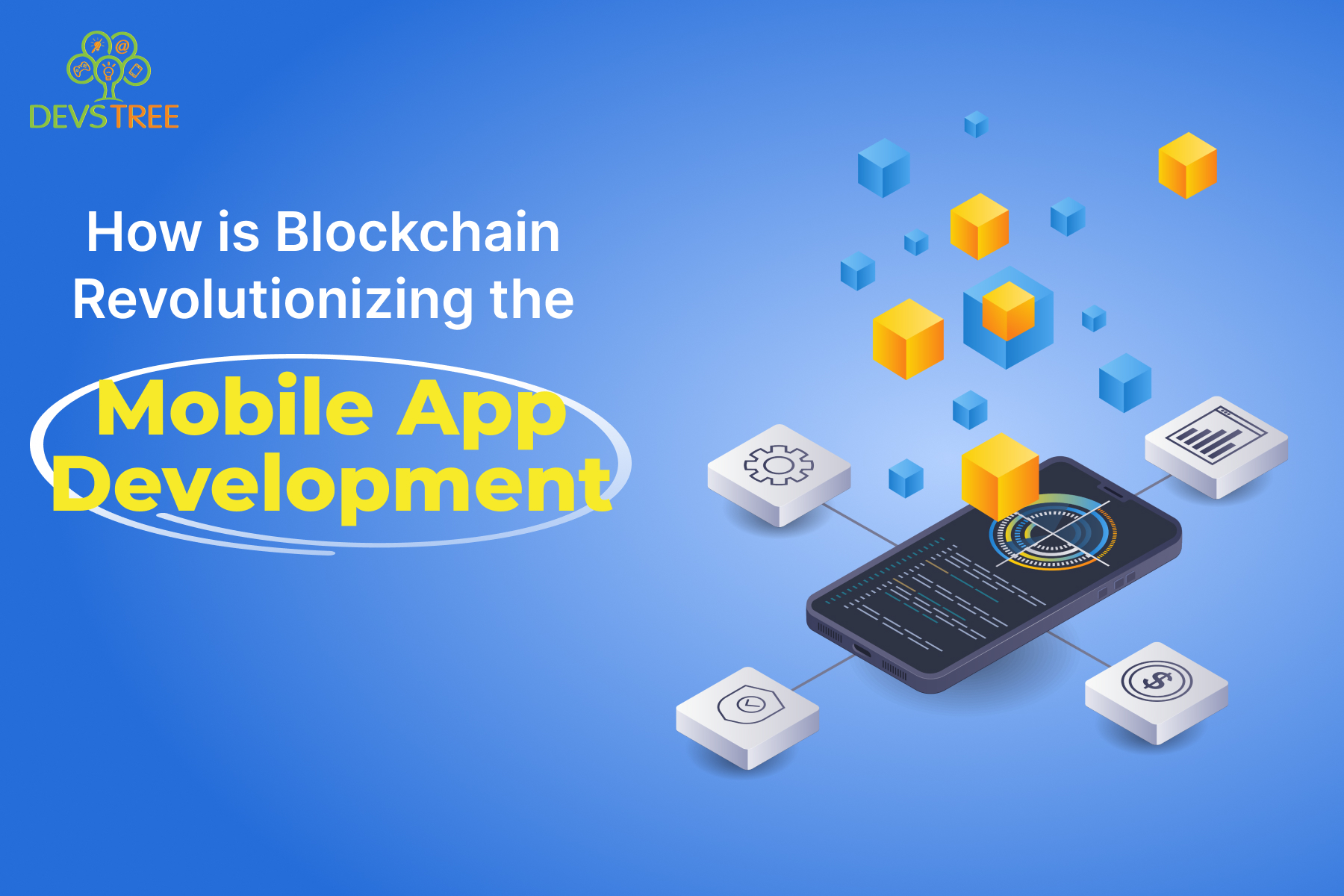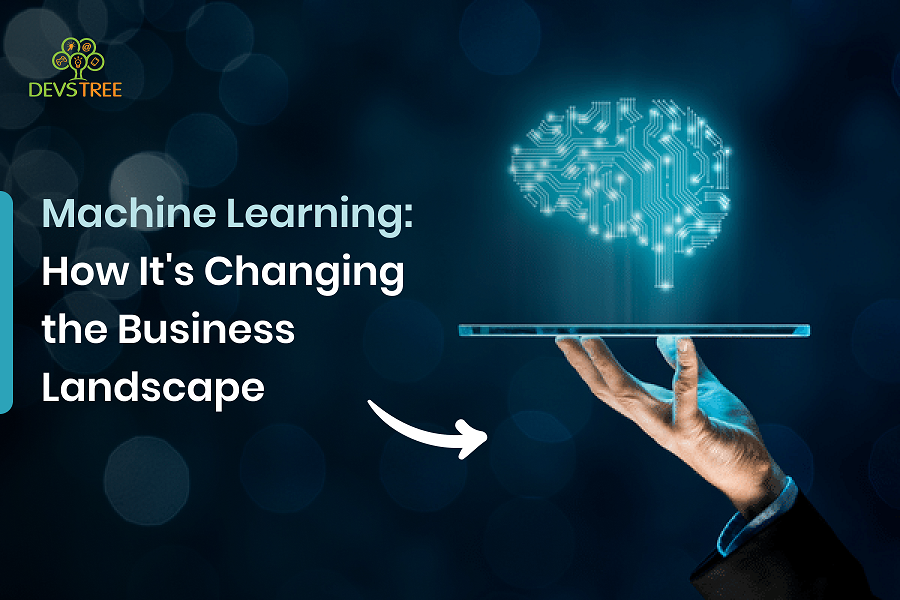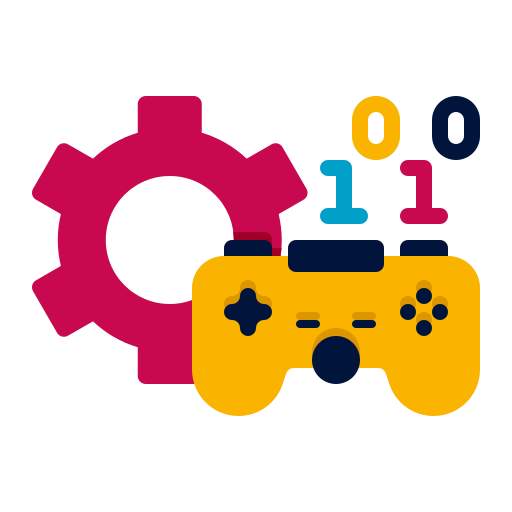How is Blockchain Revolutionizing the Mobile App Development

In the dynamism of technological advancement, blockchain has emerged as a disruptive force reshaping many industries, not just mobile application development. This blog explores the many-faceted functions played by blockchain in creating the future of mobile-based applications.
About Blockchain Technology:
Basics of Blockchain: It is the concept of a distributed and decentralized ledger technology. It is a collection of blocks that contain the transactions. The blocks are linked and secured by cryptographic hashes to ensure the integrity of the data and its impermanence.
Key Features:
Decentralization: The blockchain is not controlled by a single person. Authority over the whole blockchain network, which creates the development of a distributed network.
Impermanence: After a block gets added to the chain, it becomes resistant to tampering, protecting the integrity of the data stored.
Transparency: Members of the community can view the entire transaction history of transactions, which increases accountability and trust.
Blockchain in Mobile App Security:
1) Improved Data Security: The integration of blockchain enhances the security aspect of mobile application development. In contrast to conventional centralized systems susceptible to attacks, blockchain’s decentralized structure increases security against attacks by hackers. Utilizing encryption and consensus mechanisms also enhances the security of data stored by users.
2.) Secure Transactions: Blockchain facilitates the secure exchange of information between peers without intermediaries. This means greater transparency and security in banking transactions within mobile apps, which is especially relevant in cases that involve remittances, payments, or exchanges of cryptocurrency.
Smart Contracts and Automation:
1.) Smart Contracts Defined: Smart contracts are self-executing contracts with defined conditions encoded in codes. They enforce contracts automatically in the event of meeting certain conditions.
2) Automated Benefits: The integration of smart contracts speeds up procedures within mobile apps and reduces the chance of mistakes. In software programs for coping with supply chains, smart contracts ought to cause bills instantly upon cargo of products, hence lowering disputes and delays.
Decentralized App (DApp) Development:
1.) The rise of DApps: Blockchain allows the introduction of decentralized applications that run on a peer-to-peer community as opposed to relying on a centralized server. These DApps take benefit of blockchain’s blessings, along with improved security, transparency, and personal control.
2.) User Empowerment: DApps enable users to be more empowered to have more control over their personal information. Through direct interactions it reduces the chance of data theft and unauthorized access to their data, creating a safer digital environment.
Tokenization and Incentives:
1.) Digital Tokens, and Incentives: Blockchain enables the generation of digital tokens for utility or assets within the app. The tokens are used for transactions, using top features, or acting as rewards for participation.
2.) Enhanced User Engagement: With the help of tokenization in mobile apps, they encourage the participation of users, creating an engaged and committed customer base. This approach is particularly relevant for gaming, social media, and apps for sharing content.
Overcoming Challenges and Looking Ahead:
1) Problems with Scalability: Despite its many advantages, blockchain faces challenges like scalability and transaction speed. Research and development projects in the pipeline are aimed at addressing these problems and making blockchain more adaptable to enable widespread use in the development of mobile apps.
2.) The Future Landscape: As blockchain technology advances and integrates with new technologies such as artificial intelligence and the Internet of Things (IoT) is a promising way to develop more advanced mobile applications. The synergy of blockchain technology, the IoT, and artificial intelligence is set to unleash new possibilities of creativity.
Conclusion:
Blockchain integration into the development of mobile apps signals an important paradigm shift that will improve security, streamline processes, and give users more control. Businesses and developers are exploring the possibilities, and the synergistic relationship between mobile apps and blockchain will lead to more secure, decentralized, and user-centric apps.
Discover the potential of blockchain technology in your app development process. If you’re a start-up looking to venture into the mobile app market or an established company looking for new ideas, consider blockchain to transform your approach.
Contact us by calling Devstree Australia today to embark on this revolutionary journey to unleash the power of blockchain technology in the mobile applications you develop. The future of mobile app development is stable, decentralized, and consumer-centric. Join the revolution now.
Categories
Recent Posts

Jun 30
Web App vs Mobile App: Key Differences, Pros, Cons & Best for Your Business

Jun 26
Dedicated Developer Rates in Australia for 2025: Market Insights & Trends

Jun 24
Machine Learning: How It’s Changing the Business Landscape
Let's build or improve your Digital Product
Transform your digital vision into reality with our expert services, guiding you to build a cutting-edge digital product that exceeds expectations and empowers your business for success.
Let's talk





.svg)

.svg)





.png)











originil.webp)

originil.webp)

